Latest Archive
Free Newsletter
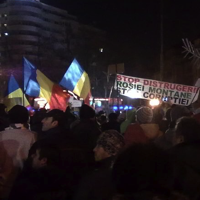
With anti-government protests in Romania moving into their second week, demonstrators are showing a persistence unusual for this part of the world, underscoring the symbolic importance they have placed in calling attention to their widespread grievances. The woes that have brought Romanians to the streets — low incomes, corruption and rising authoritarianism — are familiar to many in Eastern Europe. Indeed, the protests, which according to police estimates brought 13,000 people to the streets across the country over the weekend, follow similar demonstrations in Russia and Hungary, leading some to suggest that this is the European incarnation of the Arab […]

With the possibility of a clash between the United States and Iran over Tehran’s nuclear program looming on the horizon, one cannot help but wonder: Is it worth it for Iran, now grappling with increasingly onerous sanctions, to continue its pursuit of a nuclear capacity, albeit an ambiguous one? By all indications, Iran’s leaders believe so, based on their read of recent history. Since the end of the Cold War, according to this narrative, regimes that the U.S. dislikes for their internal behavior or external activity — and Iran certainly qualifies on both scores — run the risk of being […]
Qatar has gained increasing attention lately due to its heightened foreign policy profile in the Middle East, particularly its prominent role in responding to the Arab Spring uprisings across the region. Over the past year, Qatar has inserted itself as a mediator in Yemen’s political impasse, supported the NATO intervention on behalf of Libya’s rebels and led the Arab League in imposing tough sanctions against Syria. The high-profile activism has established Qatar as a regional “player,” but Gregory Gause, a Middle East expert and professor of political science at the University of Vermont, said he does not see any real […]
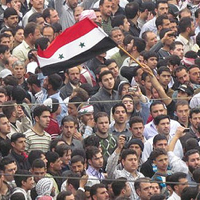
If you look closely at the grainy pictures of anti-government protests in Syria, an intriguing symbol emerges: Protesters calling for the end to the dictatorship of President Bashar al-Assad are waving two different versions of the Syrian flag. It may seem like a small detail, but it points to deep divisions among anti-Assad forces — divisions that are keeping Syrians from coordinating their efforts, sending mixed signals to the international community and creating concerns about how well the fractured opposition’s leadership would be able to function if it toppled Assad and suddenly found itself having to build a new government. […]
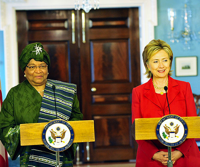
MONROVIA, Liberia — U.S. Secretary of State Hillary Clinton traveled to West Africa this week looking to highlight the Obama administration’s efforts to promote democratic institutions and credible elections. But in Liberia, a staunch ally that receives more than $200 million annually in American foreign assistance, the conversation in the run-up to the visit concerned a different policy: the first government-wide effort by the U.S. to combat the criminalization of homosexuality overseas. President Barack Obama signed a memorandum outlining the policy on Dec. 6. In a speech that day at the U.N. Human Rights Council in Geneva, Clinton proclaimed that […]
The Egyptian government is currently in talks with the International Monetary Fund over an emergency loan of $3 billion, after having declined a similar offer from the IMF last year. In an email interview, Magda Kandil, the executive director and director of research at the Egyptian Center for Economic Studies, discussed Egypt’s international borrowing. WPR: How dependent has Egypt been historically on international financing, and how has that changed since the revolution? Magda Kandil: Egypt has been dependent on financing to close the gap in the fiscal deficit. However, most of the borrowing has been domestic. Currently, public debt is […]
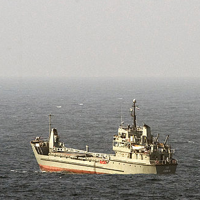
Conventional wisdom holds that it is in Iran’s near-term interest to calm tensions with the West, particularly the United States. But with those tensions now rising, it’s worth considering the dynamics at work in Tehran’s relationship with the rest of the world. In fact, the Iranian leadership’s incentives may run counter to our expectations, making a continuation or escalation of tensions more, not less, likely. Iran’s long-term national interest is best served by developing nuclear weapons, which would fundamentally alter the strategic balance in the Middle East. A nuclear capability would allow Tehran to bully its neighbors and pursue its […]
Earlier this month, India approved a $1.18 billion deal for the purchase of 500 Mica air-to-air missiles from the French defense firm MBDA. In an email interview, Jean-Luc Racine, a senior CNRS fellow at the Center for South Asia Studies at the School for Advanced Studies in Social Sciences and the vice president of the Asia Center in Paris, discussed France-India relations. WPR: What have been the Sarkozy administration’s main priorities in advancing France-India ties? Jean-Luc Racine: Since then-President Jacques Chirac’s visit to India in 1998, France-India ties have improved consistently, and current President Nicolas Sarkozy has clearly toed the […]
Two weeks ago, President Barack Obama released a new strategic document intended to provide guidance for cuts in the growth rate of the defense budget (.pdf). Though the planned leveling off of the defense budget had already been announced in principle, the strategic priorities laid out in the document make it official: There’s going to be a knife fight at the Pentagon. Unfortunately, the American public won’t be watching. As I’ve argued before in this space, the process of cutting the defense budget is inherently messy. Defense policy is best understood as the outcome of a massive scrum between different […]

For all the attention Iran has received as of late, a significant development continues to be overlooked. Specifically, recent events have underscored that the three pillars of Iran’s long-standing deterrent-based military doctrine have become wasting assets in Tehran’s changing strategic environment. This factor is likely to be influential in shaping the regime’s continued debate over whether to cross the nuclear threshold. As Iranian policymakers lose confidence in their current deterrent capabilities, the strategic rationale for a nuclear arsenal will become increasingly apparent. Since the end of its war with Iraq in 1988, Iran’s military doctrine has relied heavily on three […]
Since taking office in March 2011, Myanmarese President U Thein Sein has taken steps to move the country away from the political repression and human rights abuses that have left it internationally isolated over the past five decades. His initial efforts led to a process of engagement with the U.S. that culminated in U.S. Secretary of State Hillary Clinton’s visit late last year, the first by a U.S. secretary of state to the country in half a century. At the time, Clinton held out the hope of further engagement in exchange for continued progress on a variety of human rights […]
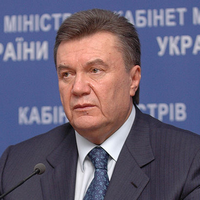
The perennial standoff between Ukraine and Russia over natural gas prices will be accompanied by an added wrinkle this year, with news that Ukraine plans to ink a deal for a joint venture with energy-rich Azerbaijan for supplies of liquefied natural gas (LNG). The partnership, which will finally introduce unconventional energy sources to Ukraine, underscores the flagging fortunes of Russia’s pipeline monopoly and the dwindling leverage it commands. According to Vladislav Kaskiv, the head of Ukraine’s State Agency for Investment and National Projects, the formal announcement between Baku and Kiev for the arrangement will be made later this month at […]
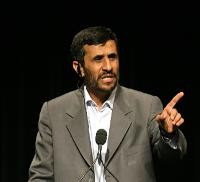
Iranian President Mahmoud Ahmadinejad’s four-country Latin American tour last week was noticeable for its lack of achievements. The trip again underscored the gap between Tehran’s global ambitions and its constrained capabilities. Iran has yet to establish the means to challenge core U.S. economic, security and other interests in Latin America, and there is little likelihood of that changing in the future. In recent years, Iran has sought to expand its economic ties as well as diplomatic partnerships and influence in Latin America. Thus far, however, Iran has only managed to develop close ties with a few regional governments that share […]
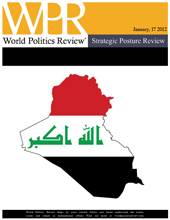
From its initial emergence as a British mandate following World War I, to the post-independence monarchy from 1932-1958, through the military coups that ushered in the rule of first the Baath Party in 1968 and then Saddam Hussein in 1979, external threats and internal tensions have characterized the history of Iraq. Now that all U.S. military forces have left the country, Iraq’s government once again faces the challenge of overcoming internal divisions, even as it becomes fully and solely responsible for Iraq’s security for the first time since the U.S.-led invasion of 2003. Iraqi leaders must manage these interrelated challenges […]
